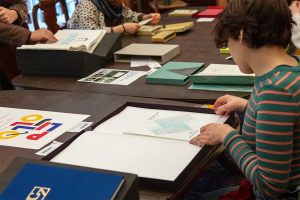
The John Hay Library Undergraduate Fellowship Program supports original research using the special collections at the John Hay Library. This fellowship was founded by Heather Cole in 2019, during her tenure as Head of Special Collections Instruction and Curator of Literary and Popular Culture Collections at Brown University’s John Hay Library.
Over eight weeks each summer, a cohort of students build research skills using primary sources to develop an original project. Projects can take the form of a traditional research paper, or may be creative or digital in format, but all projects must make primary and substantive use of the rare books, manuscripts, artwork, and/or other objects at the Library.
Projects do not have to be completed by the end of the summer; the fellowship can serve as a start for a senior thesis or can be a further exploration of work begun during a course. Fellows work primarily in the Special Collections Reading Room, with workshops related to book history and other topics that fit the fellows’ interests, along with possible field trips. Fellows are requested to be in residence in Providence for the duration of the program.
In addition to their projects, fellows are asked to:
- Keep a research journal documenting their progress. The journal is meant to be a personal, organizational tool and is not submitted at the end of the fellowship.
- Submit a final reflection paper on their experience, due on the last day of the program
- Present their research at the fellowship program showcase in early fall
Each fellow will receive a stipend of $5,000 to cover housing and other expenses. Project-related expenses can also be supported by the Library.
2026 Program
The 2026 program will run from June 8 – July 31, 2026. Fellows are expected to be on campus for the majority of the program, and to spend approximately 20 hours per week on fellowship-related work. View list of fellows here (at the bottom of the page).
The 2026 cohort will be comprised of six fellows:
- Daniel G. Siegel Fellow: Research on any topic relating to American literature or history, using materials in the Hay’s collections.
- Racial Justice Fellow: Underwritten by the Douglas W. Squires ’73 Strategic Collections Fund, which supports academic programs that advance scholarship on questions of race and social justice, this fellowship supports research on related topics within Hay collections.
- Brown University History Fellow: Research on any topic relating to the history of Brown University.
- CLEAR Primary Sources Fellow: Engages critical perspectives on libraries, archives, or other cultural heritage sites, as relates to collections at the Hay.
- Military and Society Fellow: Research on any topic relating to the social, political, economic, and cultural influence of world militaries during war and peace, using materials in the Anne S.K. Brown Military Collection.
- One fellow working on any topic relating to materials in the Hay’s collections.
Applicants should apply to the program as a whole, and not individual fellowships; the selection committee will match winning projects with the appropriate fellowship.
More information on collections at the John Hay Library can be found on Fields of Hay, the Library’s collection listing, and the Hay’s collecting policy, as well as by searching BruKnow, where searches can be limited to materials at the Hay. Applicants are encouraged to think beyond individual collections, and to consider projects that explore themes found within multiple areas. Applicants are also encouraged to reach out to library subject specialists for assistance developing project ideas and identifying materials with which to work. Interested applicants may also set up a consultation with the program facilitators, Heather Cole and Jasmine Sykes-Kunk.
Eligibility
The program is open to all Brown first years, sophomores, and juniors currently enrolled in a degree program, as well as seniors graduating in fall 2026. Students on leave during the 2025–2026 academic year are ineligible to apply.
Applying
The application is now open and submissions will be accepted until February 18, 2026.
Applications should include:
A project proposal of approximately 500 words that details the project and which Hay materials will be used and how time will be spent. For tips on creating successful proposals, see these guidelines from fellowships@brown.
Additional materials, such as a portfolio or writing sample, are optional.
One letter of recommendation from an instructor familiar with the applicant’s work; an additional letter is optional.
Information for Recommenders
Each application should be accompanied by at least one letter of recommendation that speaks to the quality of the applicant’s work and how the applicant might contribute to the fellowship cohort. Letters can be uploaded at here.
Contact Information
For questions, contact program administrator Jasmine Sykes (jasmine_sykes@brown.edu) or Micah Saxton (micah_saxton@brown.edu).
2025 Fellows
Paulina Gąsiorowska ‘27
A Desire for the Faithful: The illuminated incunabula and medieval manuscripts of the “Fasciculus Temporum”
My project investigates the influence of material (print/manuscript), language (Latin/vernacular), and time on how late medieval and early modern books look, how they are structured, and how they’ve been read. It does so through the lens of the aesthetically confounding chronicle titled “Fasciculus Temporum” (‘A Little Bundle of Time’)—one of the first historical examples of a ‘bestseller,’ editioned over 30 times in print, copied around a dozen times by hand, and translated into multiple languages and dialects before the end of the 15th century. In a way, all my research centres on just one book, but in another, each newly encountered copy becomes a new book on its own terms; this tension between standardisation and particularity constitutes the heart of my argument.
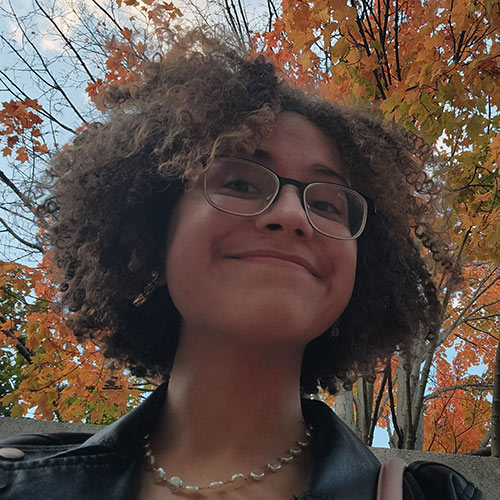
Coral Gimbernard ‘28
Embodying Ourselves : Exploring Feminist Responses to the Reproductive Medical Gaze in Late 20th Century Rhode Island
This project delved into various Pembroke Feminist Activism in Rhode Island Collections, such as the Mary Ann Sorrentino Papers and the Rhode Island Women’s Health Collective Files, to seek out attempts at reproductive activism through health education in late 20th century Rhode Island. It explores the attempts of the growing feminist movement to take back control of fertility and childrearing through shared community knowledge.
Yumna Hussen ‘27
“Intellectual labour of Incarcerated Individuals, Internationalism and Black radicalism: An Analysis of Mumia Abu Jamal’s artwork”
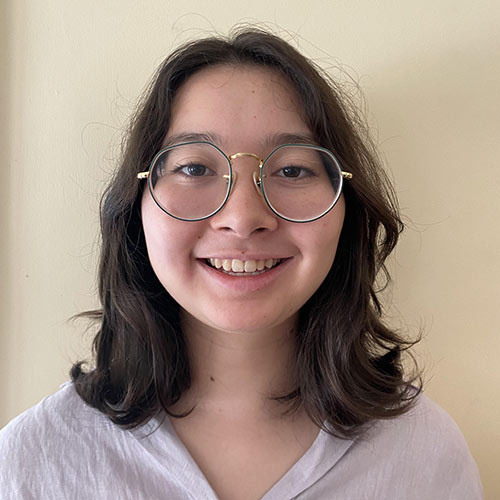
Levine, Lauren ‘27
Southern Encounters: Imperial Networks and British Exploration of Antarctica
My project uses materials from the Hay’s Bradford F. Swan Antarctic Collection and the John Carter Brown’s Rare Books Collection to investigate the imperial worldview that informed British scientific research and geographic discovery in Antarctica. I am particularly interested in how British encounters with indigenous people and relationships between expedition members and animals reveal the centrality of the Global South and British colonialism to Antarctic exploration through the nineteenth and early twentieth centuries.
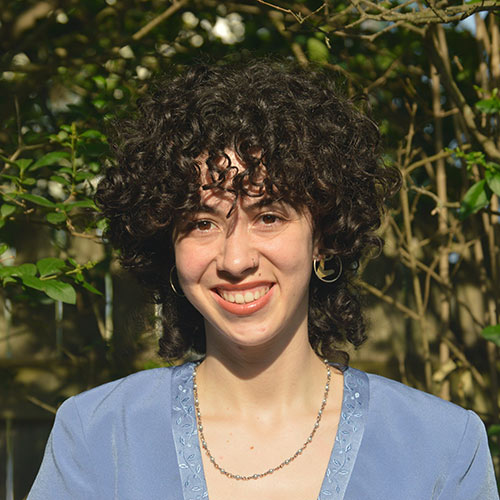
LoGreco, Ellanora ‘27
The Labor of Laundry: Reconstructing Women’s Work
This project focuses on the material conditions of working class laundresses in the late 19th century as a means to study a group of mostly black women who aren’t often included in the traditional textual archive. Through use of the Joe and Lil Shapiro Collection of Laundry Ephemera and experiential reconstructions of soapmaking and laundry-doing, the project explores the necessity of studying haptic knowledge and craft to understand contemporary knowledge systems and patterns of daily life.

Pozo, Daniella ‘27
Practical Limitations: Quilted Objects and the Women Who Make
Using written materials from the Elaine Ryan Hedges Quilting Collection, this project looks at quiltmaking as an expression of women’s relationship to gender, art, and archives. Hedges, an American feminist and scholar, paid particular attention to the labor of responsibility forced onto women and children who produced quilts. The fact that quilts themselves are widely considered nostalgic or joyfully pre-industrial revolution, can work to mis-remember how the makers actually lived. In this project, the quilt is abstracted to its basic elements (worn fabric, needle, thread, shapes and geometry) through the practice of paper quilts created with handmade paper from my own textile waste.
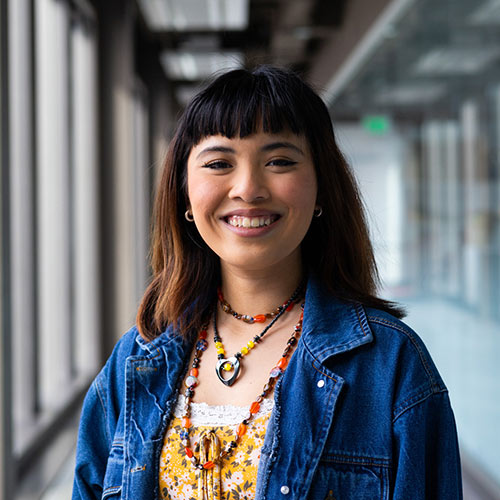
Sunga, Eiffel ‘27
Fight for YOUR country: A Case Study on Filipino Foreign Nationals in the U.S. Navy
My research seeks to explain the increased interest and enlistment of Filipino foreign nationals in the U.S. Navy following World War II. I explore themes of colonialism, citizenship, immigration, and social identity to show how military service was viewed both as an occupation and a patriotic duty for non-US nationals.
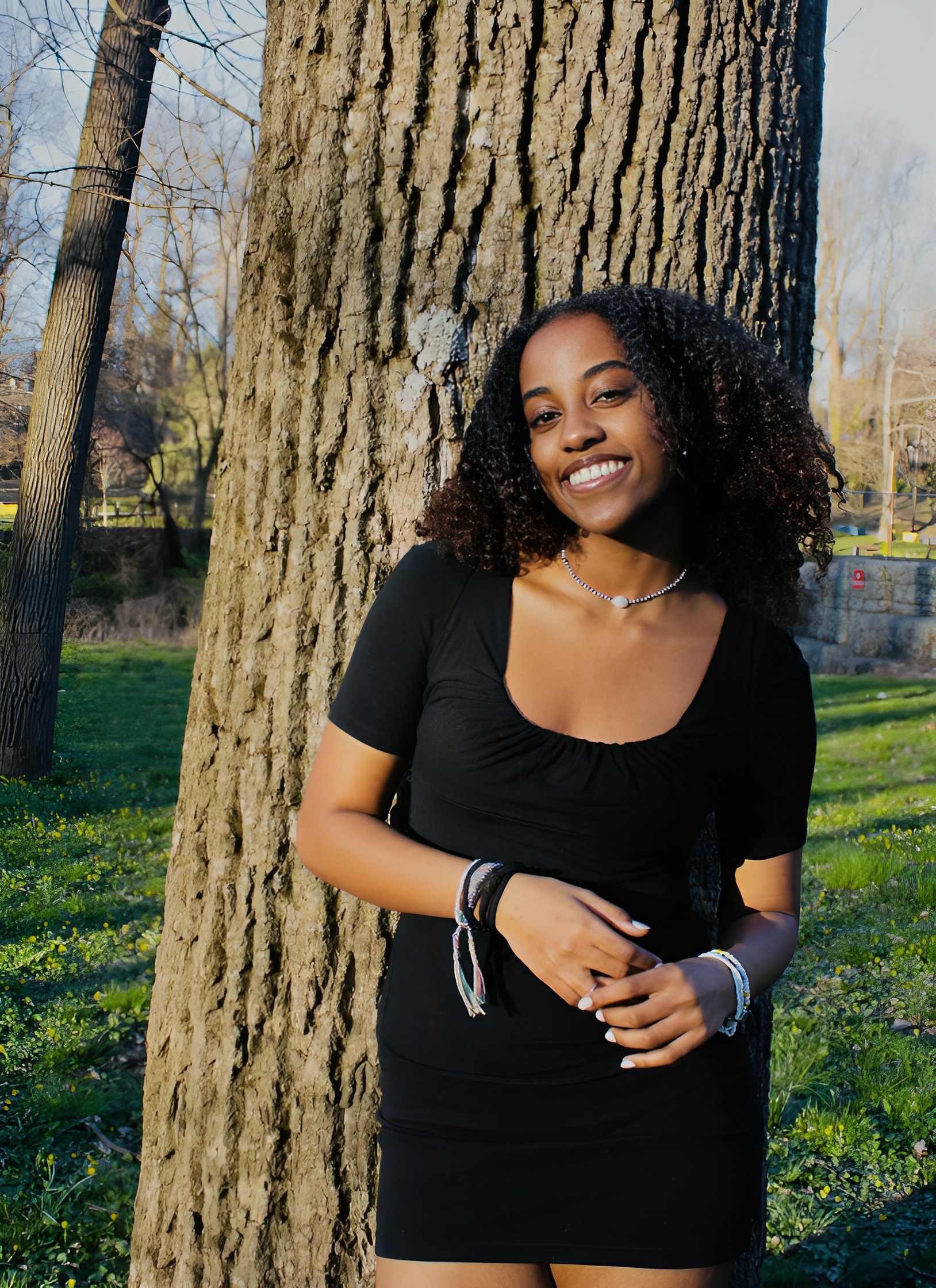
Tamrat, Mahliat ‘27
Do-It-Yourself Ethics: Grassroots Press and Black Punk Zine-Making
This project traces the connection between underground press and the storytelling of Black punk rockers in the Malana Krongelb zine collection. The project seeks to activate the collection and a broader legacy of resistance movements subverting establishment media by constructing resourceful channels of communication to avoid hegemonic surveillance.
2024 Fellows
Click here to view a full list of 2024 fellows

Harrison Douglass ’26
Bryson Dance Fellow
“A Mirror of Life: Literary and Artistic Reception of the Ballets Russes”
Making use of the Hay Library’s Bryson Dance Collection, this project aims to analyze emergent themes in the art and literature surrounding the powerfully seductive Ballets Russes. The project seeks to wholly understand the “Balletomania” craze, the revolutionary viewing experience of Modern theater, and the ways in which these phenomena are explained and abstracted through language and visual art.

Mackenzie Ford ’25
Bryson Dance Fellow
“Famous for their Fiery Tango: The Vaudeville Stardom of Addison Fowler and Florenz Tamara in the Archive”
Investigating the nature of vaudeville stardom in all its glitter and sin, my project analyzes materials from the Hay’s Bryson Dance Collection. In this project, Addison Fowler and Florenz Tamara, a Spanish dance duo whose career on the global vaudeville circuit spanned 1922-1937, become the embodiment of what it means to use language to spark, promote, and maintain stardom in a field that discarded stars as quickly as they could rise. The storied career of this duo becomes a metonymic representation of an entire industry which fetishizes and degrades the exotic; which reveres money and the art of the dance in equal measure; which loves and hates the very bodies of the dancers upon which it relies.

Mallory Go ’25
Center for Library Exploration and Research Fellow
“Traditional Midwifery to Clinical Obstetrics: A Feminist and Historical Analysis”
This project explored the evolution of midwifery and obstetrics, highlighting the critical role of midwives in ensuring maternal and child safety across different cultures and historical periods. It delved into the sociocultural factors that shifted maternal care from traditional midwifery to clinical obstetrics, emphasizing the importance of understanding these practices within their specific contexts and advocating for a more holistic, culturally sensitive approach to maternal care. This project also discusses the application of feminist methodologies and radical empathy to honor the experiences of women and address the complexities and contradictions in the history of childbirth practices.

Rachel Kamphaus ’25
“The World Wide (Women’s) Web: The Information Age and Cyberfeminist Responses”
Using papers form the Pembroke Feminist Theory archives, the Malana Krongelb Zine collection, and the Kate Bornstein papers, this project investigates the cyberfeminist movement from the late 90s and early 2000s. It is particularly interested in cyberfeminism’s relationship to other post-human discourses at the time, and accordingly evaluates the cyberfeminist response to questions such as disembodiment, identity, and community building on the web.

Hannah Stoch ’26
Brown University History Fellow
“Jewish Life at Brown University in the Late Twentieth Century”
This project examines the varied existence of Jewish life at Brown between 1945 and 2000. Utilizing student publications and records from Brown University, Pembroke College, and Brown RISD Hillel, Hannah traces how students formed communities amidst pressure from the University and changes in the Jewish community at large.
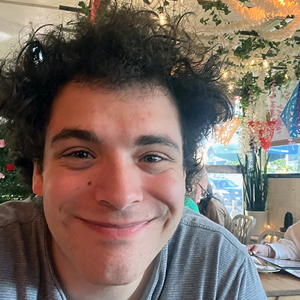
David Tapper ’25
Daniel G. Siegel fellow
“The Wandering Jew as Other as Myself: Cultural Allegory in the Legend and Law of the Wandering Jew”
Using materials from the Wandering Jew Collection and the Hall-Hoag Collection of dissenting and extremist printed propaganda, this project explores how themes present throughout the history of the legend of the wandering Jew have influenced both Christian and Jewish interpretations of Jewish identity and culture. Spanning printed and distributed pamphlets in 18th century England, restrictive laws for Russian Jews, novels and plays, antisemitic propaganda, and Rabbinic exegesis, the legend of the wandering Jew has permeated many facets of Jewish cultural identity. By examining the relationships between persisting themes in these sources, this paper reflects on how the legend of the wandering Jew engages with modern conceptions of Jewish identity with regard to senses of belonging and otherness.

Mariana Waller ’26
“Ladies, Women, and Penises: Exploring the Black Lavender Experience”
Through the close reading of two plays from the Black Lavender Experience collection, Mariana notes Black Queer playwright’s unique discussions of gender (identity, norms, and expression) and body politics. Mariana critically engaged with My Penis: An Exhibition by Dréya St. Clair and “Black Femme Praxis and the Promise of Black Gender” by Treva Carrie Ellison to discuss the fugitivity of black femmes with penises. She also wrote a short play titled “Girl Jesus!?!?!?” as a sequel to “A Lady and a Woman” by Shirlene Holmes.
2023 Fellows
click here to view full list of 2023 Fellows

Madeline Canfield ’24
Daniel G. Siegel fellow
“Conceptions of Jewish Identity and the Political in 20th Century American Literature”
Breaking into four eras based around shifts in expression of American nationalism, Madeline’s project analyzes representations of Jewish politics within literary texts by an array of Jewish authors. It assesses how the eras in which they were produced may have influenced the extent to which they conceived of Jewish identity as affected by and implicated within national ideologies, state governance, and systems of identity-based power and oppression.

James ‘Jazz’ Carlson ’25
Anne S.K. Brown Military Collection fellow
“The University as Nationality and Identity During and After World War”
Using materials from the Anne S.K. Military and Society Collection, this project explores how a student’s wartime connection with Brown University mimics the relationship between a citizen and their nation. Jazz hopes to produce a creative work and an academic paper that investigates how that relationship helped students transition from civilian life to military life during the World Wars, and the troubles of demilitarization in the years thereafter.

Seoeun ‘Sunny’ Choi ’24
“In the Margins of History: Buddy’s Journey as Korea’s First Queer Periodical”
In her research paper, Sunny maps out a comprehensive history of Korea’s first queer periodical Buddy from the Hay Library’s Katzoff Collection. This history follows Buddy’s complete journey from its humble beginnings in a tiny office in Seoul to its ultimate death through the rise of the internet in the 2000s. A roughly translated finding aid of each issue is included.
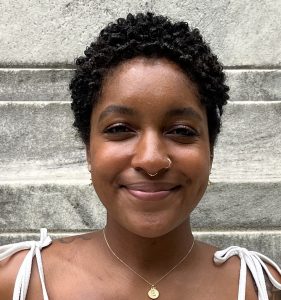
Elon Collins ’23.5
Racial Justice fellow
“Unedited: Tying Together a “First Order” Black Feminist Discourse”
Inspired and driven by Hortense Spillers’ call for a “first order discourse” in her paper Interstices: A Small Drama of Words, “Unedited” is an archival art project. By suturing, pinning, and stringing, “Unedited” brings together the little-known, unfiltered, unpublished, and of course, unedited works of six Black feminist theorists in the form of an imagined conversation.
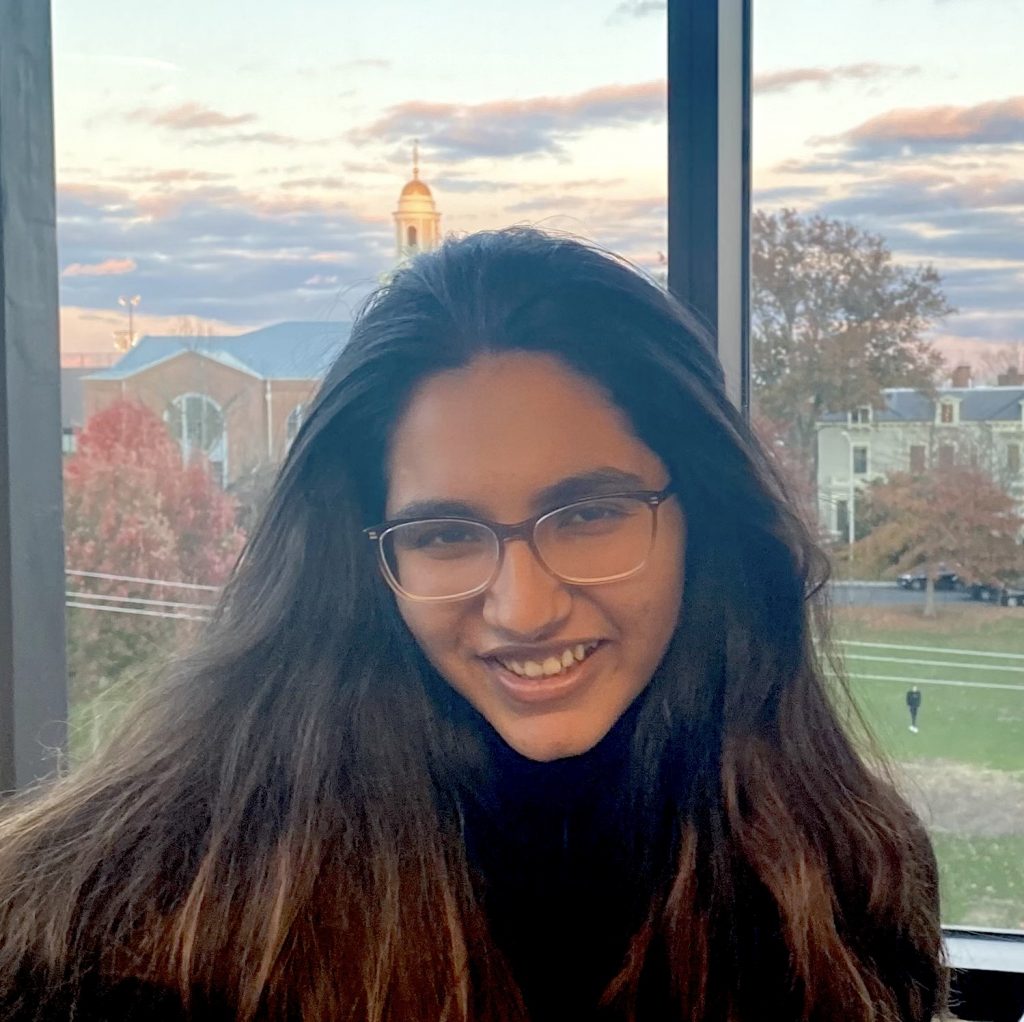
Aalia Jagwani ’24
“Fragments on Intimacy: Queer Desire from the Margins”
Aalia is working with the Hay’s archives of queer pulp fiction, periodicals, zines and other small-circulation publishings. This source material provides unique insights into the way queer people experienced and articulated desire when it could not be freely expressed through more mainstream channels. Her project is a chapbook compiling fragmented writing in conversation with the archive — writing shaped by the shared queer experiences surrounding desire as well as the language and symbols used to express it.
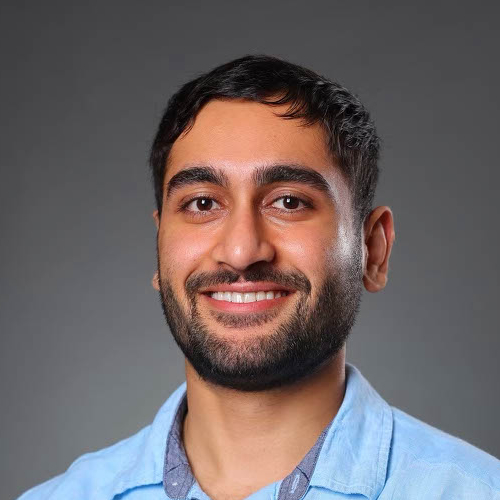
Surya Khatri ’24
Brown University History Fellow
“Tracing Threads of Time: An Exploration of South Asian History through Cultural Narratives at Brown University.”
Using materials from the Brown University Biographical files, this project tells the story of the rich, and previously undocumented, South Asian history at Brown University. It contextualizes the micro-experience of these students to the macro-history of the United States in the 20th century. Specifically, the project builds from alumni narratives to better understand how parts of the specific South Asian student experience has remained the same while other parts have evolved dramatically. Ultimately, this project hopes to serve as a bridge for future and current students of color, empowering them to explore their own histories within the broader tapestry of academia.

Audrey Wijono ’25
CLEAR Primary Source Research Fellow
“Moving Beyond the White Man: Representations of Indigenous Bodies and Labor in the George Earl Church Collection”
This project utilizes 20th-century Latin American travel literature, imagery, and personal narratives within the George Earl Church Collection to identify, question, and reflect on representations of Indigenous bodies–particularly those produced by the Western ‘scholarly elite’. Through critical re-readings of these archival materials, this project underlines the role of indigenous knowledge and labor in laying the groundwork for Western archival practice and knowledge production.
2022 Fellows
click here to view full list of 2022 Fellows
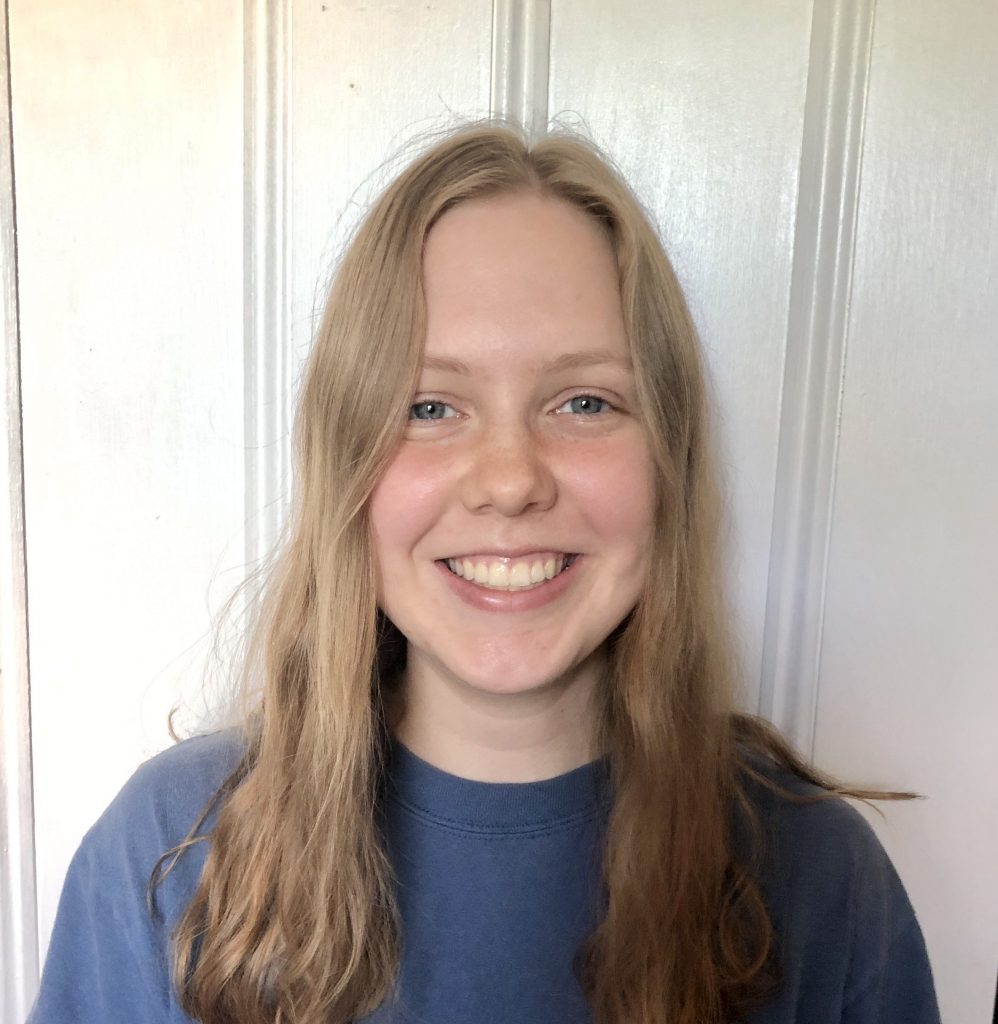
Anna Lee ’23
“A Genealogy of the Fetus and its Medical Technologies”
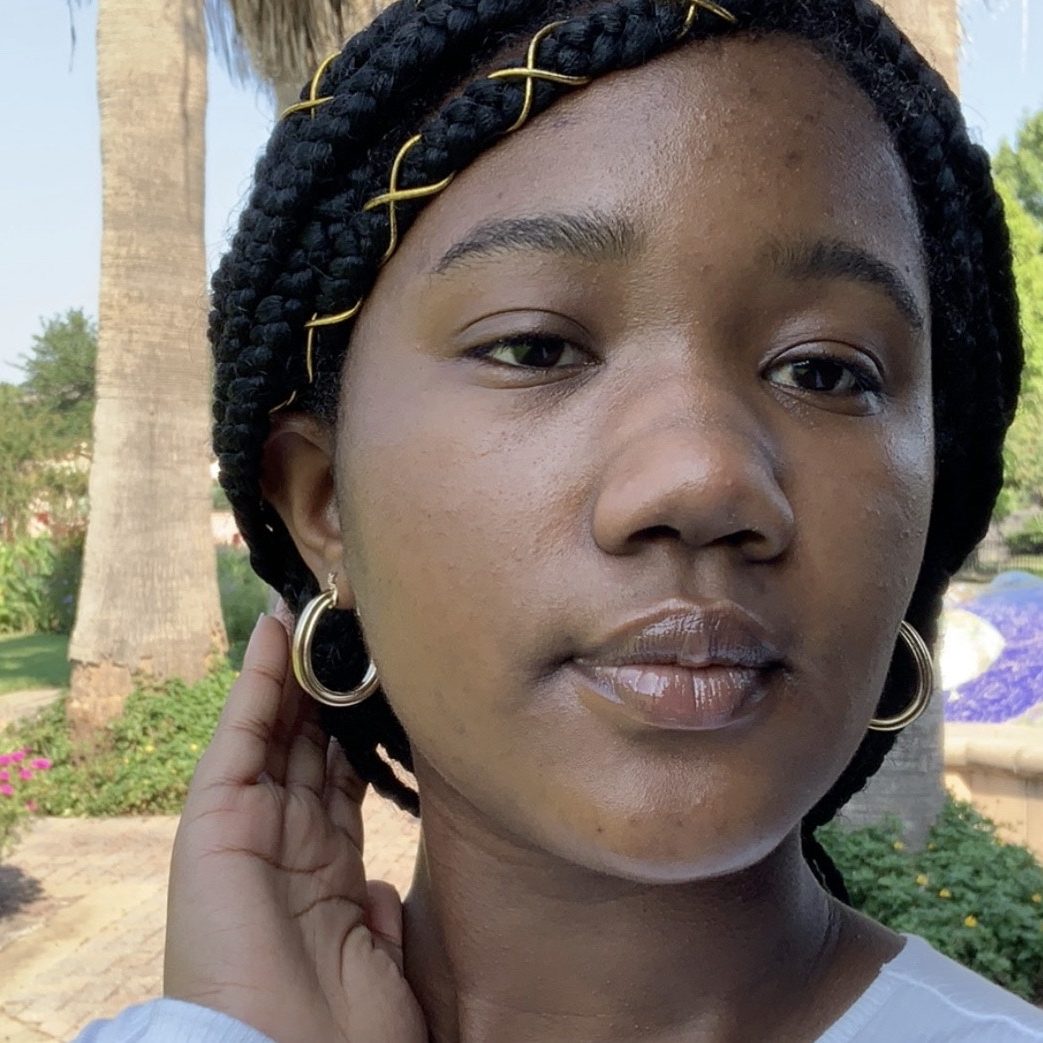
Nia Sampson ’25
Daniel G. Siegel ‘57 Fellow
“Black American Beauty: Archives of the South”
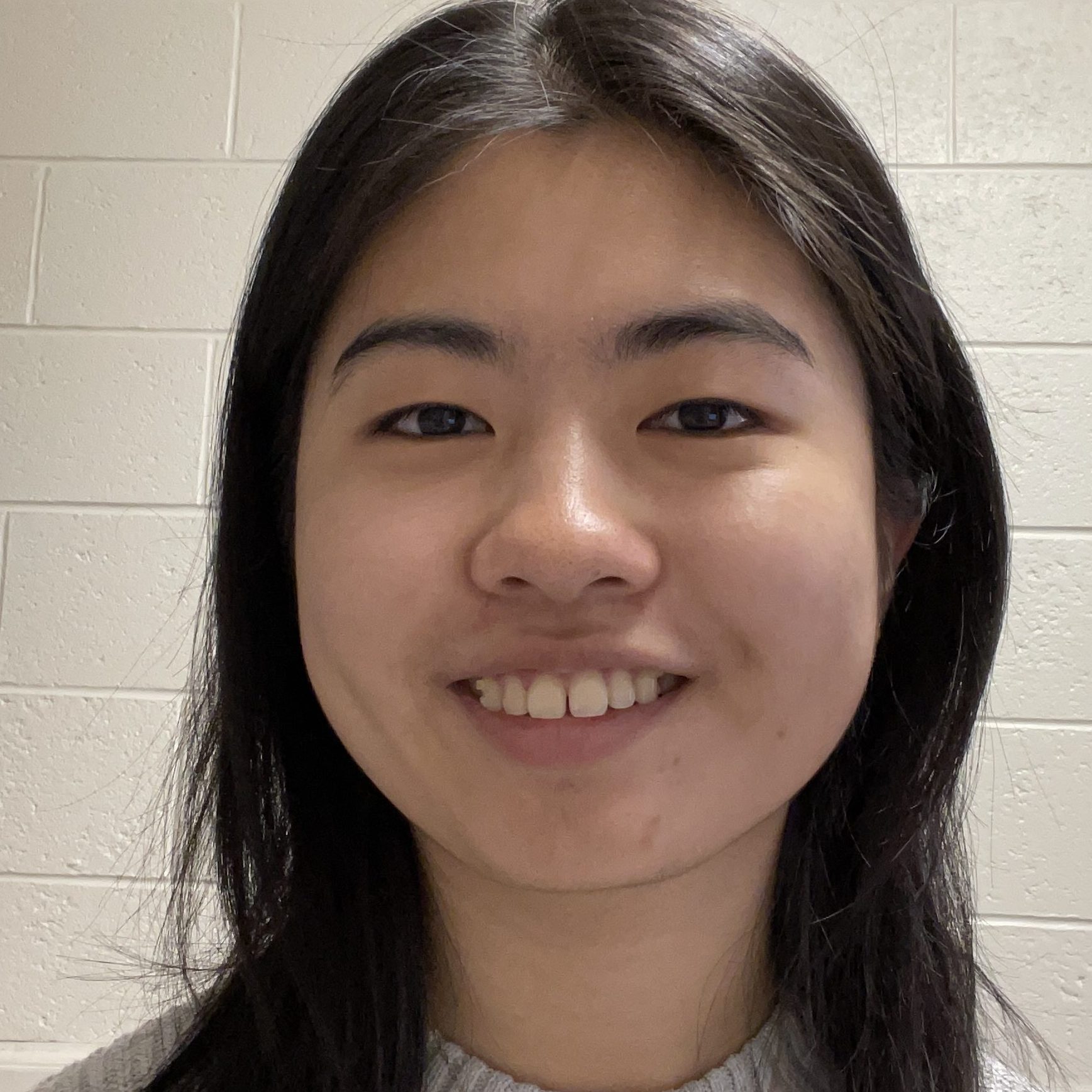
Grace Xiao ’24
Racial Justice Fellow
“Handicraft and Radical Care: Generational Narratives of Chinese America”
Isabelle Centolla ’24
“Sciences of violence: constructed, resisted, and danced”
Anna-Kate Lembke ’23
Brown University History Fellow
“Tougaloo and Brown: The partnership and its contours”
2021 Fellows
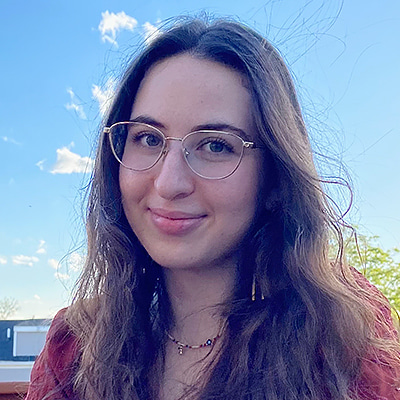
Yara Doumani ’22
Racial Justice Fellow
“‘In Sisterhood I Will Remain Strong’: Pan-Tribal and Transnational Indigenous Women’s Activisms and Representations, 1970s-1980s”
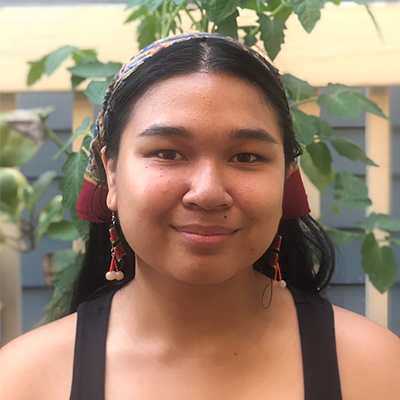
Audrey Buhain ’22
Daniel G. Siegel ’57 Undergraduate Fellowship
“Theories and Poetics of War in U.S. Imperialism”
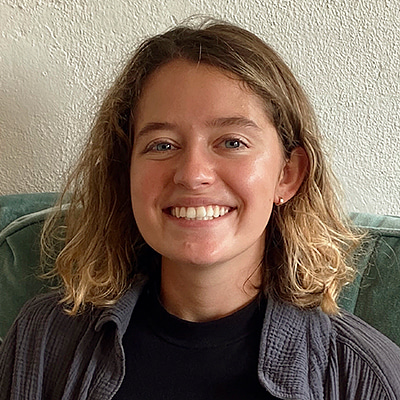
Deb Marini ’22.5
Brown University History fellowship
“Lincolniana, Whiteness, and the Weaponization of an ‘Exhaustive’ Archive.”

Lillian Pickett ’22
“Defining Gendered Violence: Tracing Feminist Perspectives on the Carceral State in Late 20th Century Rhode Island”
Dylan Lewis ’22
“Miracles in the Hue of your Flesh: On Building a Black Magical Praxis”
2020 Fellows
click here to view full list of 2020 Fellows
Danielle Emerson ’21
Daniel G. Siegel ’57 Fellow
Danielle’s project, “Exploring Past and Contemporary Indigenous/Native Storytelling,” will delve into works by Native and Indigenous peoples in our collections. Danielle, an Education and Literary Arts dual concentrator, hopes to produce a podcast series in which she will explore and contextualize the materials she finds.
Mady Slater ’20.5
Mady is a Modern Culture and Media concentrator. Her project, “Queerness, Pleasure, and Play,” will explore personal ads and correspondence in the On our backs archive, along with other archives relating to queer experiences, performance, and spaces, and will create a video game that maps the aesthetic politics of those conversations onto modern equivalents such as dating apps.
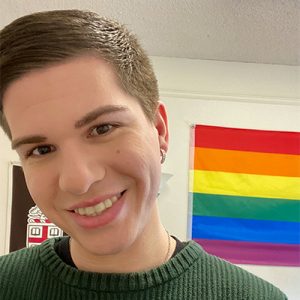
Matthew Marciello ’21
An American Studies and Gender and Sexuality Studies dual concentrator, Matthew will be working with the Anne Fausto-Sterling Papers as a lens into the rise of the intersex rights movement in the 1990s and early 2000s. He hopes to closely examine the extensive correspondence found in the collection to analyze the role of Fausto-Sterling’s article “The Five Sexes” and her writing overall in the beginnings of the intersex rights movement. He further hopes to synthesize the multitude of activist and scholarly actors that propelled the movement forward, especially Cheryl Chase, the founder of the Intersex Society of North America. The outcome of this work will be chapter 2 of his in-progress thesis, which is tentatively titled, “From Hermaphrodites with Attitude to #EndIntersexSurgery: Intersex Activism, Resistance, and Critique of Intersex Genital Surgery.”
Kanha Prasad ’21 and Diego Rodriguez ’21
Kanha, a History concentrator, and Diego, a Visual Arts concentrator, will work together on a project titled “Students, Decolonization and the Curriculum: 1968-present” that will examine the development of the Open Curriculum through the lens of the concurrent radical student movements for diversity and inclusion and global decolonial movements.
2019–2020 Fellow
click here to view 2019–2020 Fellow

Madeline Morningstar ’21
Using the Katherine Chase Sprague Papers as foundational materials, Madeline plans to create a timeline of the Chase family’s history specifically focused on Katherine Chase Sprague and Governor William Sprague. To situate the narratives and choices within the timeline, further research will include the societal expectations and customs of the late 1800s surrounding the Providence area. Additional research regarding the Civil War, the abolitionist movement, and the battles surrounding the Providence, Cincinnati, and New York City areas will also be necessary as the Chases were a highly politicized family involved in the civil discourse of their time.
Once a narrative is established, Madeline intends to write a history play based on the information that she has found within the Hay. The play will ask how relatable such histories can be to a modern audience, how best to normalize actions that were taken within a very different societal context, and to what degree adaptations grant individuals relevance. The researched materials will dictate to a large degree the setting, plot, and characters seen within the script. The play will be staged in Fall 2020.
2019 Fellows
click here to view 2019 Fellows
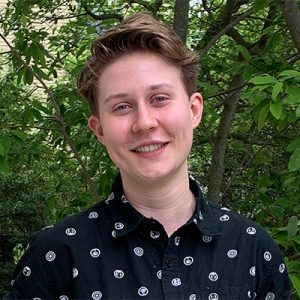
Finch Collins ’21
“(Trans)formative Fandom: Trans Studies, Problematic Authors, and Reclamation”
Working with the Caitlin Kiernan papers and the gay pulp fiction collection, Finch will investigate negotiations of queer identity through fandom, and will examine the extent that fandom can serve as a site of reclamation and identity creation, and how utopian thinking on fandom’s reclamatory value might fall short; he hopes to produce a 40-50 page paper as a first step toward an honors thesis.

Evan Kindler ’20
“The John Birch Society in the Trump Era”
Evan hopes to examine Trumpism’s roots in Bircherism, examining how this far-right extremist group’s agenda has been reflected in Trump’s policies and rhetoric, and will produce a paper and possibly a creative work. Evan hopes to submit his paper to an academic journal.

Alan Mendoza Sosa ’20
“Nightsky’s Glitter”
Alan will create an experimental queer poetry chapbook, inspired by and incorporating elements from the gay pulp fiction collection, the Scott O’Hara papers, the Katzoff Collection, and the Smith magic collection. The book will explore themes of gender, sexuality, embodiment, and language, while questioning queer media representation, the social distinction between “high” and “low” literature, and between “academic” and “popular” culture.
Special Collections Links
- Home Page
- Visiting
- Using Special Collections
- Special Collections Hours
- Permissions & Publication
- Reproduction Services
- Collections A – Z
- Strategic Collecting Directions
- Finding Aids and Catalogs
- History of Special Collections
- Center for Digital Scholarship
- Exhibitions
- Friends of the Library
- News
- FAQ
- People
